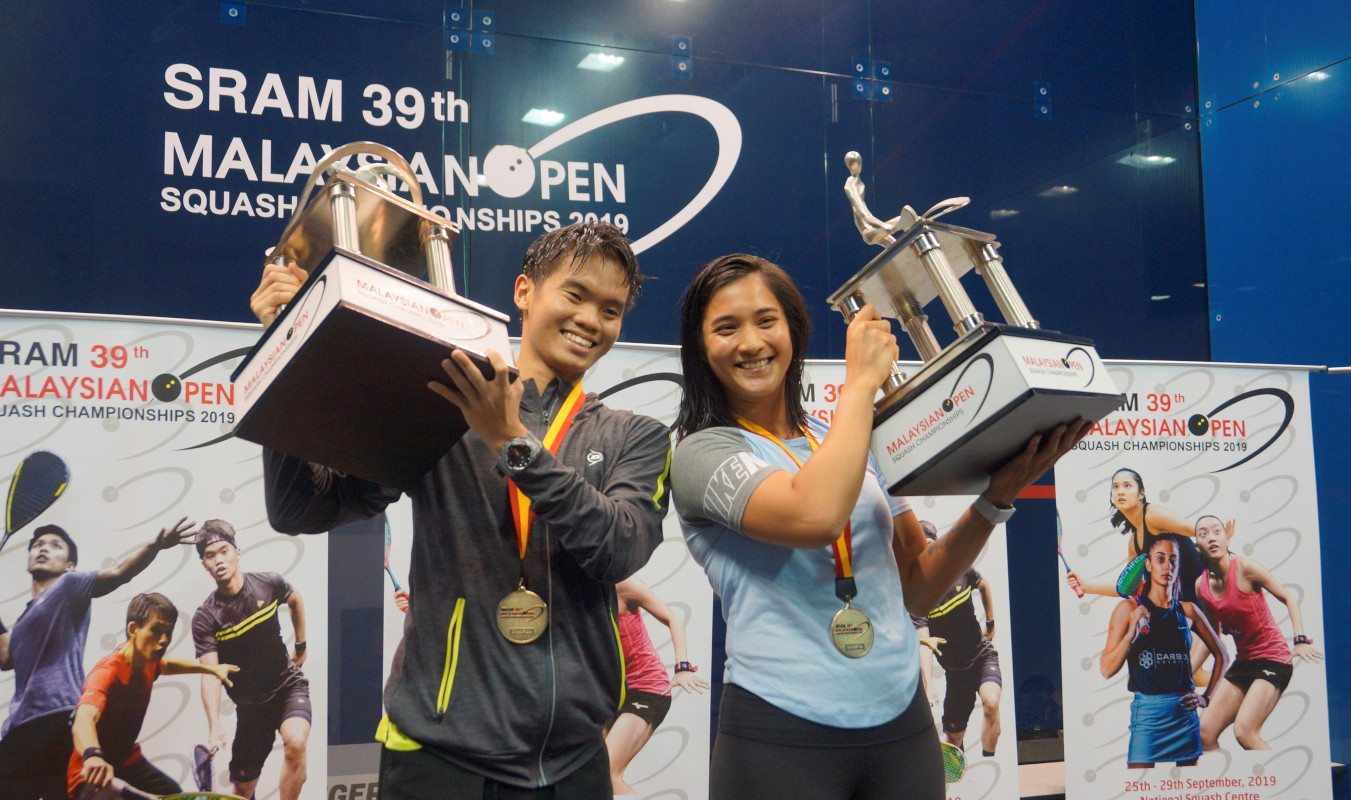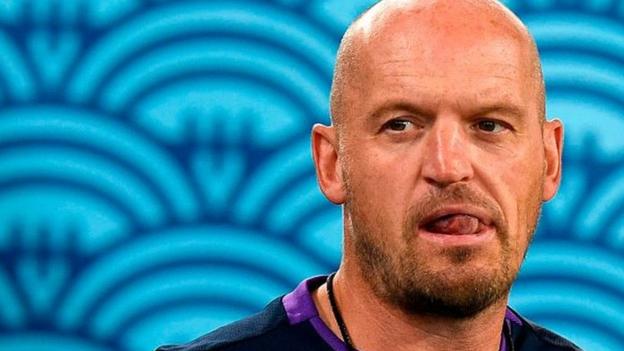For the guts of a week, the Scotland players have tried to move on from the events of Yokohama against Ireland. Not an easy transition, that.
Every day has brought a new inquisition, new questions about their mentality and their ability. It's been uncomfortable and occasionally brutal. In various reports they've been called spineless, clueless and pathetic. One headline ordered them to hang their heads in shame.
At times you felt some players wanted to jump across the table and throttle their interrogators at their hotel in Kobe, but a media conference is not the place for them to vent their fury. All of that should come out against Samoa under the closed roof at the Misaki Stadium on Monday.
After the week they've had then, a response is surely coming. Scotland need to start well at the Misaki, need to work harder, need to defend better. The list of things they must do - and didn't do last time out - stretches the length of Sannomiya, the city's main drag.
The most recent meeting of these sides - a 44-38 Scotland win at Murrayfield in Gregor Townsend's fourth game in charge - showed the extremes of this team, its excellence and its flakiness. Scotland played some class rugby to sail into a big lead in that game. They mauled Samoa off the park, scoring two tries off driven line-outs, both touched down by Stuart McInally.
Then, they fell asleep. Samoa piled through a dozing defence again and again. They scored five tries that day. Scotland scored six. Townsend doesn't need such drama this time. He needs a professional and clinical performance free of mental frailties. Or else.
Blow torches, ripping it up & Bradbury's moment
Townsend has taken a blow torch to the squad that failed so woefully in Yokohama. Some senior men have got it.
Being Scotland captain for two years offered no protection to John Barclay, who has been dumped from the match-day squad. Being captain in Scotland's second last game was no help to Ryan Wilson, who's been demoted to the bench. Being one of the country's highest try-scorers was no use to Tommy Seymour who has also missed out on the 23.
In their place, mostly youth. Darcy Graham - a pocket battleship, a terrific finisher and a player on form - was unlucky not to start against Ireland, but that chance has now come. Graham sounded psyched for the battle when he spoke on Saturday, as did outside centre Chris Harris the day before. If Harris can back up his words with actions, then it won't just be the Samoans who are hitting hard.
There was agony in losing Hamish Watson, but Townsend has ripped it all up in the back-row. Magnus Bradbury has gone from living a parallel universe in Japan - in the country but not in the squad, existing in the margins as injury cover - to being at the heart of the action.
One of the myriad problems against Ireland was the lack of ball-carrying grunt up front. Bradbury can do it - and he can do it well.
His tendency has been to do it in fits and starts in games. An angry Bradbury needs to turn up against Samoa because this kid can play and fight when the mood takes him. If he's ever going to mark himself out as part of Scotland's future then this is his time, this is the moment.
Scotland lacked energy and aggression and work-rate against Ireland. Ireland's dog was a Rottweiler. Scotland's dog was a poodle.
Jamie Ritchie's elevation ups the growl factor. Good on the floor, good in the collisions, decent with ball in hand, Ritchie has the tough job of replacing the injured Watson. He's no Watson in the specifics of ball-carrying and groundhog, but he's got a similar edge as Watson. He's got the same appetite for work, the same kind of hardness.
In between them, there's the great unknown that is Blade Thomson. All that we hear is that Thomson is different to anything Scotland has in that position. He's a ball-carrier with game intelligence and footwork, a clever thinker, a back-row forward with Scottish ancestry but very much of the New Zealand school.
Thomson needs to be as good as his team-mates say he is. The evidence so far is inconclusive. He hasn't played enough Test rugby to settle the argument one way or another, but he deserves his chance.
Scotland's back-row against Ireland had 146 caps. Their back-row against Samoa has 23. In his search for energy, Townsend has sacrificed experience. Not too many people will disagree with the calls he has made.
'The biggest day of Townsend's coaching life'
This is monumental stuff for Townsend. The biggest day of his coaching life and one of the biggest days of his rugby life. If it doesn't go well, then Scotland are goosed and this World Cup will go down as the worst in their history.
The fallout would be scary. Townsend and his staff would be pilloried to the point of demands being made for their heads. The players would be subjected to the kind of slating that would make the reaction to Yokohama seem like a warm-up act. In defeat, Scotland would have nowhere to go bar a deep, dark place.
If they have anything about them, then there's a big performance coming against Samoa, a nation all but abandoned by the powerhouses in world rugby. Samoa have little money and little opportunity to improve. You could write a book about their plight, but the bottom, and sadly unchanging, line is that the treatment of the Pacific Island countries is a scar on rugby.
Maybe that sense of isolation gives them an extra anger to feed off. They are still very much alive in this World Cup, having beaten Russia with a bonus point. Another win against Scotland and Pool A will have had a second seismic result following on from Japan's unforgettable victory over Ireland on Saturday.
On Yokohama form, Scotland are vulnerable. What we know about Townsend's team, however, is that they can bounce back quickly from disappointment. They need that resilience now more than ever.
After Wales hammered them in the opening game of the 2018 Six Nations, they then beat France and England in their next two games. When the USA upset them in Houston that summer, they followed up by destroying Argentina in Resistencia. When France took them apart in Nice last month, they found something in adversity and did them in the return game.
Clear signals and signals of intent
Japan's win of the ages has crystallised Scotland's challenge here. Mere victories are not sufficient any more. They need bonus points now, beginning with Samoa, a team that has in the recent past caused Scottish sides to break out in a rash. In the past five meetings, the Scots have won four of them but the points total across those games is 130-126 - in Samoa's favour.
It's true that this vintage doesn't look as good as their recent predecessors, certainly not in the same class as the side that pushed Scotland to the wire in the World Cup four years ago. That was a terrifying afternoon in Newcastle. This version has a lot of the power and attrition of the sides that went before but not quite as much of the game-breaking brilliance.
They are also without some important men. Rey Lee-Lo, the centre, and Motu Matu'u, the hooker, are both banned after their reckless headshots against Russia. Their numner eight, Afa Amosa, is out of the tournament with a knee injury. Scrum-half Dwayne Polataivao, scorer of two tries against Australia in a warm-up game in early September, hasn't recovered from a concussion sustained against the Russians.
Depleted, they'll still bring a rage to proceedings. As their coach, Steve Jackson, has put it: "We're under no illusions about what Scotland are going to bring in that area [physicality] and they should be under no illusions about what we're going to bring."
Samoa are not happy with the Scots. In the wake of those Lee-Lo and Motu'u high tackles against Russia, Greig Laidlaw said they wanted referee Pascal Gauzere to keep an eye on the way Samoa go into contact on Monday. Not unreasonably, Laidlaw said that Lee-Lo and Motu'u should have received red cards on the night instead of yellow.
Jackson was unimpressed by Laidlaw's intervention. "There's obviously been a lot in the press with people making things a little worse than they already were," he said. "Things put in the media by people in the Scottish squad, talking to the referee about our tackling and all that sort of stuff."
There was always going to be a major edge to this game and the chat in the preamble has only added to it. As one Scottish player after another said last week, this is do-or-die now. They either front up or they start getting ready to go home.

























 Phone: (800) 737. 6040
Phone: (800) 737. 6040 Fax: (800) 825 5558
Fax: (800) 825 5558 Website:
Website:  Email:
Email: 






